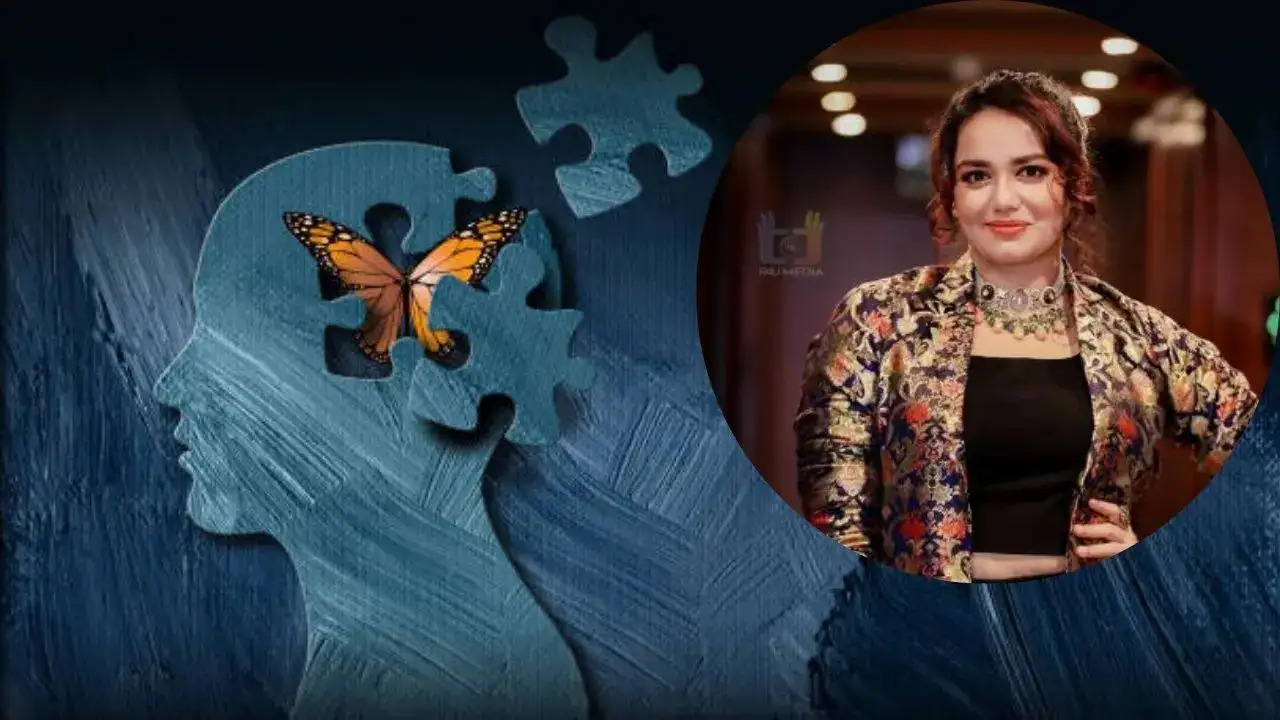
Autism is characterized by a spectrum of traits, with no two individuals experiencing it in the same way (Pic: Instagram/iStock)
Renowned vocalist Jyotsna Radhakrishnan has revealed she has been diagnosed with autism – also known as autism spectrum disorder or ASD, a neurodevelopmental condition affecting how a person may process information, impacting social interaction, communication, and behaviour.
According to experts, autism is characterised by a spectrum of traits, with no two individuals experiencing it in the same way. Adults with autism may exhibit challenges with social cues, communication, repetitive behaviours, and sensory sensitivities. Jyotsna said she opened up about her diagnosis to create awareness about the disorder – which has similarities with many other disorders like attention deficit hyperactivity disorder or ADHD as well. Jyotsna claimed she answered some of the queries that had daunted her throughout her life in a TEDx talk.
She had moved to the UK when she thought she wanted to escape from everything and enrolled in a course there, which raised certain doubts about herself. And then, after consulting a psychologist, she undertook a few tests, which clearly revealed her diagnosis.
“I am a highly masking autistic adult. You might think that I am lying, as I don’t look like an autistic person; that’s because you don’t know anything about autism. Some people might say that every individual is autistic in one way or another. But that is not the case. You are either autistic or not. Autism or neurodivergence means you see and perceive the world differently,” the singer told Onmanorama in an interview.
“Only then did I understand why I was reacting emotionally to everything and experiencing things intensely. I realized why I had not been able to take things lightly or easily despite people urging me to do so. I was trying to mask myself in a world I created for neurotypical personalities,” she added.
What are the signs and symptoms of adult autism?
According to experts, those adults who did not get diagnosed with autism in their childhood have a few enhanced symptoms of the condition – a few of which include:
- Difficulty making conversation
- Difficulty making or maintaining close friendships
- Discomfort during eye contact
- Difficulty understanding sarcasm or idioms
- Lack of inflection when speaking
- Trouble understanding facial expressions and body language
- Problems reading the emotions of others
- Challenges with regulating emotions
- Social anxiety
Doctors say autistic adults may also have inflexible thought patterns and behaviours and may carry out repetitive actions. A few examples of this behaviour include:
- Making involuntary noises, such as repetitive throat-clearing
- Having a reliance on daily routines and difficulty dealing with change
- Experiencing the need to arrange items in a specific order
Apart from this, autistic adults may have a hypersensitivity to sensory stimulation, such as sounds or smells that do not seem to bother others or bright lights.
Diagnosing autism in adults
According to experts, it is most likely that many adults with ASD could never be diagnosed as children and still may not have a diagnosis. If you suspect that you or a loved one may be autistic, a neuropsychologist or a psychologist or psychiatrist who specialises in ASD is the best provider for a diagnosis.
Harvard Health says there is no one test for autism. Instead, the clinician will take a thorough medical history, ask detailed questions, and perform various assessments. A combination of these, rather than a single test or tool, should be used to make an autism diagnosis.
Questions about childhood
The doctor would want to know about the person's childhood in detail, also speaking with the parents and siblings.
Questions about the present
Doctors would also like to get a sense of the person's social and communication skills by asking for details about a person’s job, interests, friendships, and relationships. They will also likely screen for conditions such as depression, anxiety, and ADHD.
Cognitive testing
Cognitive testing helps get a sense of the person's attention, memory, processing speed, reasoning, and problem-solving skills.
